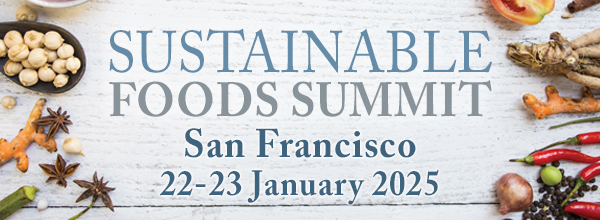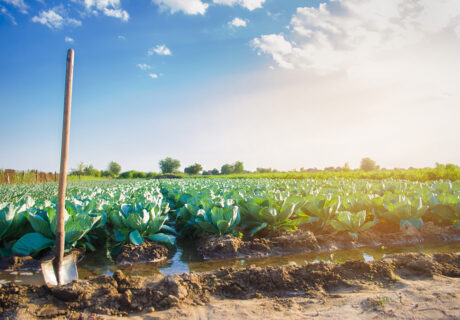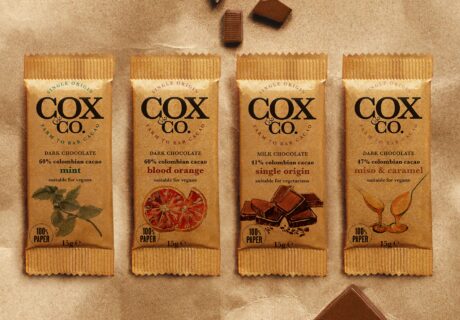Taking place in San Francisco on 22-23rd January 2025, the Sustainable Foods Summit will discuss the future direction of regenerative agriculture and sustainability schemes.
The summit will bring together leading organizations involved in regenerative agriculture, sustainability schemes, and the organic products industry. Here are some of the key highlights of the upcoming event…
> Defining regenerative agriculture. Although there is growing recognition of the sustainability merits of regenerative agriculture, there are varying interpretations and no formal definition. California is planning to become the first American state to formally define regenerative agriculture for state policies and programs. Virginia Jameson from the California Department of Food & Agriculture will explain how it is coming up with the definition; a draft version is expected at the beginning of January and will be presented at the summit. If widely adopted, the California definition could become a model for federal definition.
> Regenerative agriculture standards & hurdles. In the absence of a universal definition, voluntary standards of regenerative agriculture are becoming popular. Regenerative Organic Certified (ROC) is one of the leading standards, adopted by almost 300 certified farms and covering 15.2 million acres. Paul Alvarez from the Regenerative Organic Alliance will give details of the ROC standard, stating its key pillars, adoption, and impact.
Heidi Diestel, fourth generation farmer, will share her experiences in adopting regenerative agriculture practices. Diestel Family Ranch has been rearing sustainable turkeys since 1949. This year, it became the first turkey company to adopt the Regenified certification. In a separate panel, regenerative agriculture experts will discuss approaches to increase adoption rates and make it mainstream: how can farmers be encouraged to make the transition? What are the obstacles to higher adoption rates?
> Supply chains for regenerative organic ingredients. As the number of certified farms grows, the supply of ingredients from regenerative agriculture is increasing. Alex Heilman, Co-Founder of MAD Markets, will give details on how the company is building distribution infrastructure for such ingredients. MAD Markets is connecting regenerative agriculture farmers with food processors, brands, and retailers. It recently acquired Timelesss Seeds and its processing facilities to serve this purpose.
> Organic market update & labels. Organic is the dominant eco-label in the food industry, with American sales of organic products approaching $65 billion. The USDA Organic seal is well-established, however new labels are emerging. Linley Dixon, Co-Director at Real Organic Project, will give details of this new farmer-led grassroots movement, as well as label that represents organic foods soil grown and pasture raised.
Tom Chapman, Co-CEO of the Organic Trade Association, will present the latest market data and trends on the US organic food industry. He will show how consumer behavior has changed since the pandemic. What are consumer perceptions of USDA Organic? How does USDA Organic compare with competing labels? What are the knowledge gaps in consumers and what are the future opportunities?
The Real Organic Project, Organic Trade Association, and Regenerative Organic Alliance will comprise a panel to discuss the future direction of organic labeling. As the organic food industry matures, will we see more fragmentation in terms of organic labels? How should the USDA NOP evolve? What developments are on the horizon?
> Adopting sustainability schemes. The number of sustainability schemes and eco-labels is increasing in the food industry, making it difficult for some operators to select and adopt schemes / labels. Leading operators will share their experiences with certification schemes at the summit.
Brita Lundberg, Fourth-Generation Farmer and Chief Storyteller at Lundberg Family Farms, will be speaking about certification of its sustainable rice products. The family farm has adopted Regenerative Organic Certified, Non-GMO Project Verified, USDA Organic and other schemes. A leading natural food retailer will also give some insights into its preferred sustainability schemes.
Lara Burns from SPINS will speak about consumer behavior towards eco-labeled foods. What do American consumers look for in eco-labels? What are the motives to buy certified food products? What certification schemes are showing the highest growth?
> New technologies and sustainable ingredients. Case studies will be given of operators utilizing new technologies to create food ingredients with sustainability merits. Lisa Dyson, Founder and CEO of Air Protein, will show how the company is making protein flours from air. It is using bacteria cultures to ferment oxygen, nitrogen, and carbon dioxide molecules into proteins that can be used by the food industry.
Some operators are using Artificial Intelligence (AI) to produce sustainable ingredients. One such company is the start-up Climax Foods which is making plant-based proteins using machine learning frameworks. Oliver Zahn, founder and CEO, will show how AI is helping it make plant-based casein and cheeses. It has already launched vegan blue cheese in foodservice and retail outlets.
The use of new technologies in upcycling and ingredient management will also be discussed. Paul Bradley from TraceGains will show how its enterprise solutions can help food & beverage operators meet their sustainability goals.
More information is available from https://www.sustainablefoodssummit.com/northamerica/





